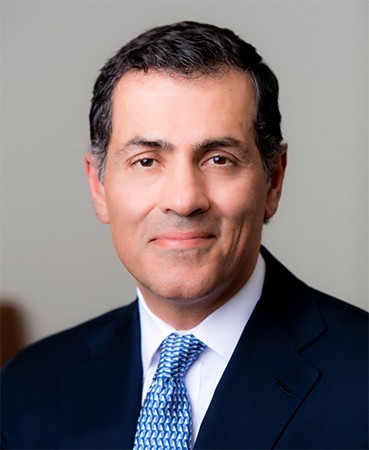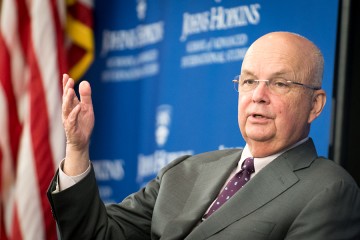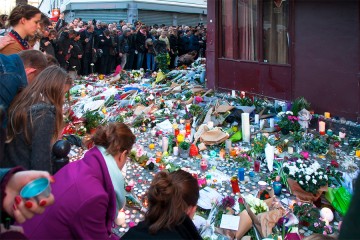In a meeting between U.S. and Russian diplomats this week, U.S. Secretary of State Rex Tillerson is expected to press Russia to sever its alliance with Syria and even enforce a regime change in response to a deadly chemical attack that killed more than 80 Syrians.

Image caption: Vali Nasr
Vali Nasr, dean of the Johns Hopkins University School of Advanced International Studies in Washington, D.C., writes in a recent commentary for The Atlantic that an attempt to divide Russian President Vladimir Putin and Syrian President Bashar al-Assad is "wishful thinking."
"The chemical attack and the retaliatory U.S. strike may have embarrassed and angered Russia—even if it was given heads up, as reporting suggests—but they've given Putin no reason to turn on Assad," Nasr writes.
Instead, Nasr points to strong, established political and cultural ties between the nations that are unlikely to come undone: the strong bond between the Russian Orthodox Church and the Syrian Orthodox Church; a history of Syria granting Russia strategic military access to the Mediterranean; and perhaps most importantly, an alliance against shared enemies in the region, including the Islamic State and the Syrian rebel forces fighting to oust Assad.
"Putin... sees the Assad regime as a bulwark against extremism, and has embraced a strategy for defeating extremism that starts with keeping Assad in power," Nasr says. "Hence, Putin sees Assad's opposition, and the Islamic State, as the immediate obstacles to his containment strategy. And, further: As long as the largely Sunni jihadis are waging war on Assad, the threat they pose to the Russian homeland is diminished."
Nasr argues that it is unlikely for Russia to join the U.S. in calling for Assad to step down.
"[Putin's] prestige and, indeed, very conception of Russia's great-power status are tied to the outcome of Syria's war," Nasr writes. "He took advantage of Obama's reluctance to intervene against Assad to become the main power broker in Syria. In the process, Assad's survival has become the measure of Putin's influence."
More from The Atlantic:
Read more from The AtlanticRussia and Assad will no doubt test American resolve, and the Trump administration will be compelled to convince them through force. But its recent actions need not lead to an expanded U.S. war in Syria. Rather, the Trump administration could instead see military action as the bedrock of a diplomatic strategy to end the civil war. Diplomacy has to be backed by the use of force. This would threaten Russia's position enough to enlist its support in compelling Assad's cooperation. A credible diplomatic process would deny Assad what he seeks through continuation of the conflict—he would likely be a casualty of a successful diplomatic settlement—but Russia could still realize much of what it seeks in Syria. And a diplomatic settlement that would keep America out of the war is in Putin's interest.
Posted in Voices+Opinion, Politics+Society
Tagged vali nasr, foreign policy, syria, russia










